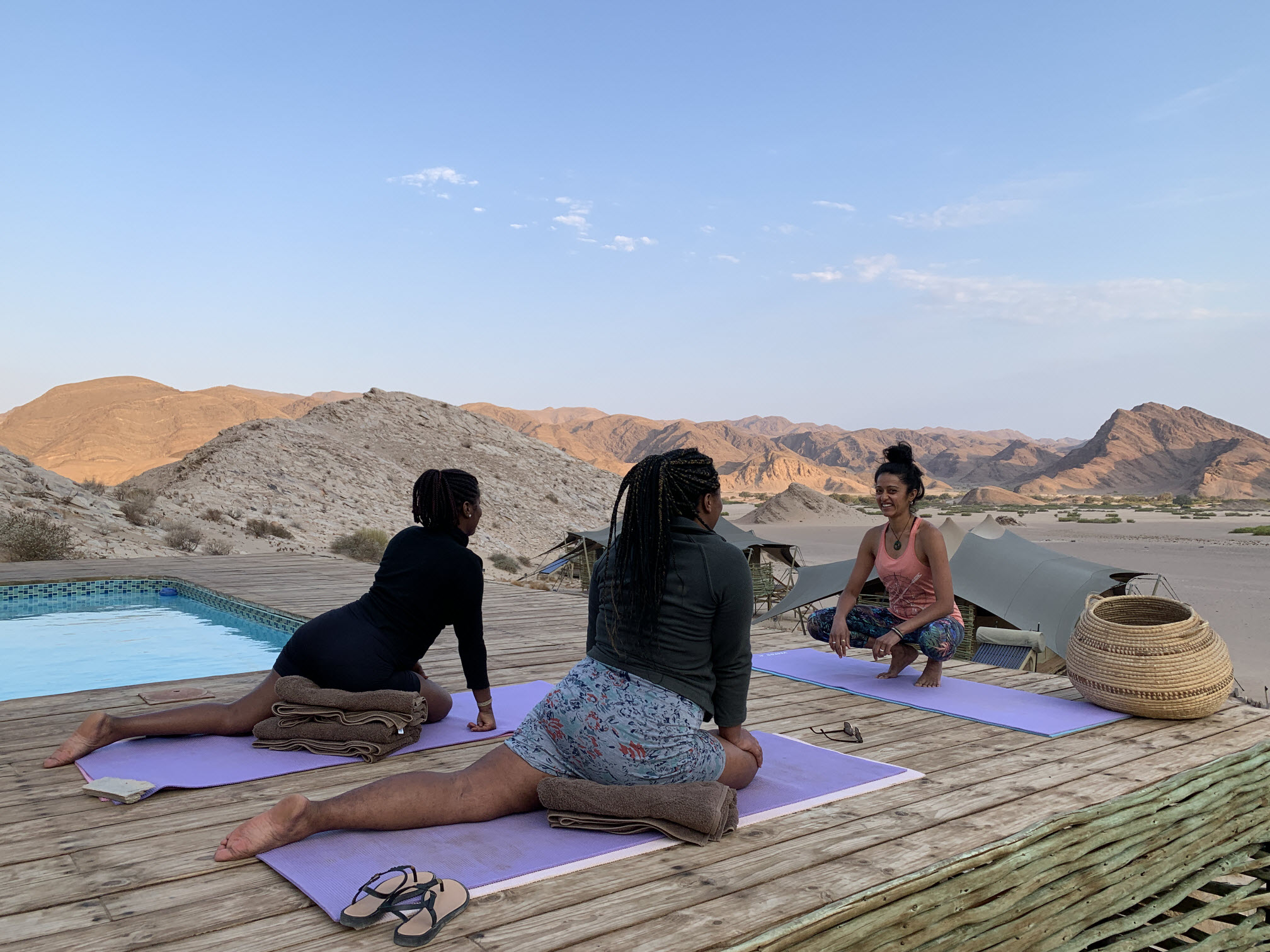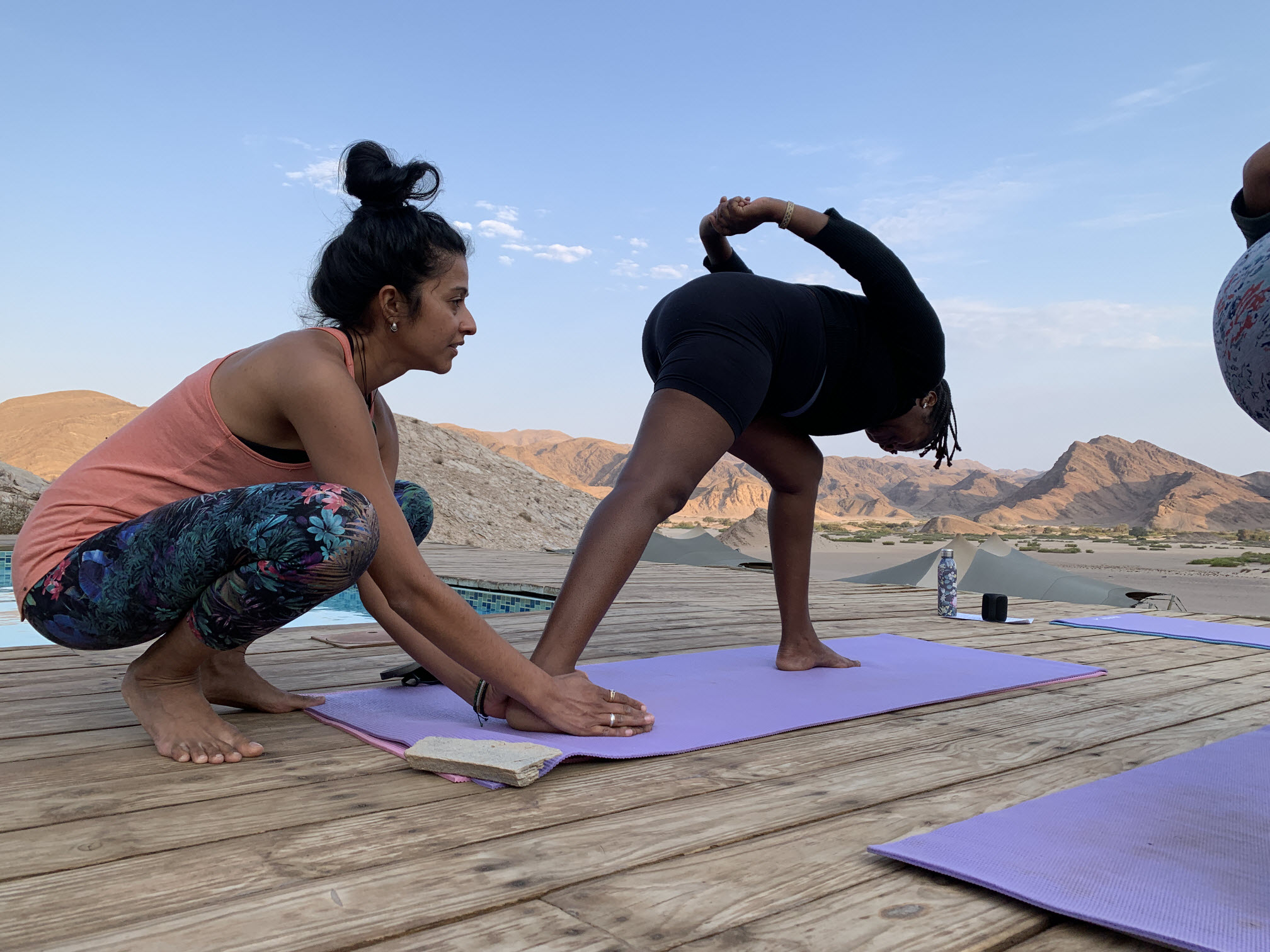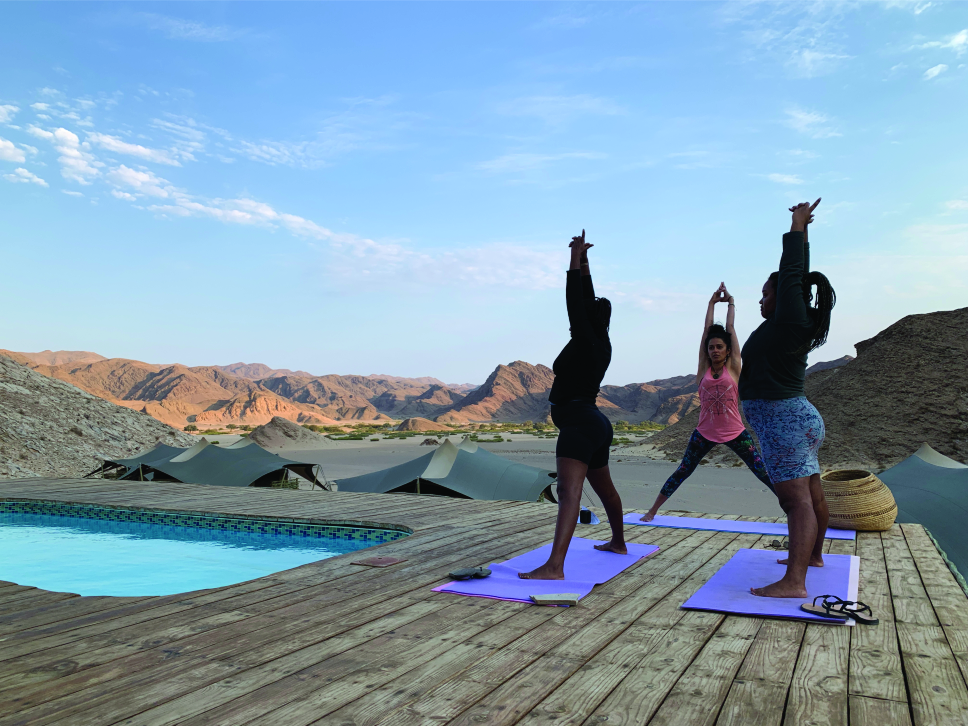waveλength – my story –
In 2017, my husband and I spent six months over-landing from Kampala to Cape Town. We camped, cooked our own food and spent our days traversing through 10,000 kilometres of this wondrous continent. And here we were, almost six years on—December of 2022—maps strewn across our bedroom floor in New Zealand as we plotted the ambitious idea of making Africa our new home. But when people asked why Africa, I couldn’t quite put it into words.
*
May 2023: “Africa’s the mother continent. It’s the cradle of humanity.” Herb says confidently as he pushes back in his chair. As a second-generation Namibian and wildlife filmmaker, Herb’s no stranger to Africa. While I’d just arrived in Botswana, Herb’s travelled extensively, visiting remote corners of this rugged continent that few others have seen. We’re sitting on the veranda, sundowners in hand, chatting about what has—over the years—brought so many to Africa’s shores. Is it an innate desire for adventure? Freedom? Escape? But Herb reckons it’s something much deeper. He tells me there is a strong maternal consciousness that is alive in these lands. I’m a little sceptical. I’m a believer in energies, but could a continent really hold a memory that strong for that many years? And is that what brought me here?
*
Though my husband and I had talked about moving to Africa for years, my motivations were still a little murky. Africa definitely held a strong allure but I was also nervous. My husband and I were on the verge of starting a family, my career as an academic researcher and yoga instructor was finally taking off and my tolerance for free-spirited living was starting to feel like a remnant of my 20’s. I was 36 and a strong sense of responsibility was kicking in. Nesting. Safety. Security. But though my monkey mind had no trouble in conjuring up an endless stream of doubt— when I closed my eyes, I could see it. My husband and I, in some wildly beautiful setting, camera in one hand, babe in the other. If there’s one quality we had as a couple, it was our grit. But were we being naive? Did we have what it would take to reboot our lives? And why Africa?
*
June 2023: It’s been quite a traumatic day. We’ve been monitoring a bushfire in Botswana’s Okavango Delta for the last week, and this morning, it got a lot closer than we would’ve liked. The camp staff decided we needed to create a firebreak immediately, but with us being so remote and no fire fighting crew on call, the task came down to us. Though I wasn’t quite dressed for it, in my t-shirt and flip flops, I got handed a blue bush branch—the local equivalent of a fire beater—and before I knew it, I was firefighting. But what began as a well-oiled operation soon turned to chaos.
Blood spewed as one of the camp staff accidentally cut his foot with a panga knife, a filmmaker singed his face, and there was much commotion as a gust of wind caused the firebreak to get a little out of control. As a novice firefighter, the first thing I noticed was just how hot it gets. Even before you approach the line of fire, you can feel the intensity of the heat and smoke. It also occurred to me that there was no Plan B. We’d either be successful in saving our camp or the fire would burn everything to cinder. Thankfully, the break proved successful, and the fire has moved away from us. For now. Though no one—aside from the Panga man—was seriously injured, I can’t help but wonder how the animals fared.
It’s been an interesting experience living in a film camp. My husband, Nick, has been working out here for the last five months tracking, filming and learning about animal behaviour from some of the region’s foremost experts. One of his favourite teachers is a six-foot Zimbabwean zoologist called Greg. Greg has worked as a guide in Botswana for several years. He knows and loves this land like it’s his own and it’s an absolute treat watching him move through the landscape—greeting the animals, tuning into the rhythm of mother nature.
Last week I came across a handwritten quote in one of Greg’s field guides which read: “What is man without the beasts? If all the beasts were gone, men would die from a great loneliness of spirit. For whatever happens to the beasts soon happens to man. All things are connected.” This is the wisdom of Chief Seattle of the North American Suquamish Indian Tribe. It made me wonder, what would happen if we all lived this way? In this web of interconnected, reciprocal relationships—the land, trees, humans and beasts?
*
I recently learnt that there are three zones to life. Two of the three will shrink your life, and only one will make it bigger and richer. If you stay in your comfort zone all the time, it eventually shrinks, and your life becomes incredibly small. But if you throw yourself headfirst into the panic zone, you might get so traumatised that you’ll snap back to the comfort zone. We need to stay in the middle, Harvard-trained sociologist Martha Beck says—in the learning zone. How? By doing something that scares us a little every day. Eventually, our mind and body relax, and our life gradually expands.
When I first learned this, I remember being shocked and intrigued at the same time. Though my life in New Zealand was comfortable enough, I couldn’t deny that the routine of my days was starting to feel a little monotonous. I could pretty safely say what my week and the next and the one after that would look like, and though I knew this was a construct of my mind, I couldn’t help but feel a little trapped.
*
September 2023: Smoke swirls in through the open window. Our vehicle jolts violently from side to side as the driver expertly dodges pothole after pothole—some that stretch the length of our vehicle. Boredom is a difficult state to achieve when you’ve been on a bustling shared taxi ride—squished alongside two others on the back seat—jostling through Zambia on our way to the Katima border post so we can begin our one-month stint in Namibia. Nick will be joining a crew filming desert elephants while I will be starting up a yoga practice at a remote camp in north-western Namibia—in a region known as “Kaokoland”—the land of the desert-dwelling Himba people. Our fellow passenger’s train of thought snaps me back to the taxi cab. “I love Zambia!” says Michael—a local businessman with a flair for fashion who longs to build a farmhouse in the Zambian country-side. “There’s freedom here,” he says, “you can do what you want when you want!” I decide now is not the time to point out the fact that we’ve essentially been prisoners inside this taxi cab for the last 6 hours.
*
It was time to make a decision. Do we put our lives in New Zealand on hold as we try to establish new lives in Africa, or do we settle down in an environment that we’d grown quite fond of?
I recently tuned into a podcast where Hollywood celebrity Hugh Jackman talks about the importance of cultivating our intuition. “Stick with it,” Hugh says. “It works on you in the way nature does. It’s patient and it’s in no rush. It’s slow. It’s steady, and it’s true.”
If I was honest, that’s what I imagined moving to Africa would be like. A decision that didn’t make perfect logical sense, but one that—my intuition told me—would deliver the experience and growth that my husband and I were in search of. And so, we bought ourselves a one-way ticket to Africa. We said we’d give it a year. A year to experiment with new opportunities. And, if by the end we weren’t quite feeling it, we could easily return home.
*
September 2023: “You’ve seen more of Namibia than I have!” exclaims Petronella, a proud single Herero mother and manager of Hoanib Valley Camp—a high-end safari lodge situated in remote, north-western Namibia. We’re seated around the fire chatting with some of the camp guests. The sun has just set, and we’re keeping our eyes peeled for the Cape Fox that is known to run circles around the fire scavenging for food scraps.
I’d just recounted a story about how Nick and I were stalked by a leopard during a lightning storm one night in Palmwag—a 5,000 square kilometre conservancy not too far from where we were seated. The incident was terrifying but humbling, and it certainly taught me the value of presence. “There it is!” I exclaim, shining my flashlight in the gap between the guests, momentarily illuminating the Cape Fox as he dashes off into the darkness.
It’s been just over a week since I’ve been stationed at the Hoanib Valley Camp. It took a full day’s drive to reach it from the closest town, and aside from another distant camp, there are few other signs of human habitation for kilometres. Between the 40-degree days, blustery afternoon winds and occasional scorpion, it hasn’t been the easiest of environments to teach yoga in. It’s also my first time teaching at a 5-star camp.
Guests from around the world venture here, ready to spend USD 1000 a night. Needless to say, expectations are sky-high. But what I’ve found curious is that being out here seems to be somewhat transformative. Guests arrive—clinging tightly to their itineraries and egos—but after a few days of tracking elephants, unplugging and dining under the stars, they begin to let go. At first, I couldn’t quite figure it out. And then I came across this entry in the guestbook by a lady from the Philippines who’d visited earlier that year.
I came to Namibia exhausted,
and I leave tomorrow refreshed.
Thanks for the silence,
Thanks for the whipping wind,
Thanks for the sweltering heat,
Thanks for the cold,
Thanks for the signs of life,
Thanks for the living rock,
And the shifting sands.
*
I once read a quote, which read: “The precept that location is the key to the success of a business applies to art, and even to life itself. We thrive or wither depending on how nourishing our environment is.”
It’s November of 2023 and we’re in Ruaha National Park—one of Tanzania’s best kept wildlife viewing secrets. We’re on the hunt for a pride of lions that we’ve heard calling all night long. It’s been 10 months since we left home. Why Africa? Perhaps it simply comes down to the fact that this environment—with its giant elephants, diverse tribes and majestic landscapes—takes me out of my comfort zone and into the realm of learning and growth. Will we stay? I’m not sure. But what I do know is that although life isn’t always easy, I feel alive, and I will forever be grateful to this wondrous continent for the lessons it has taught me.
**

Pooja Khatri is a Yoga Instructor and Academic Researcher. She and her husband decided to reboot their lives and move to Africa in early 2023. If you’d like to follow Pooja’s travels or find out more about her yoga teaching, you can find her on Instagram at instagram.com/pjinthewild/


